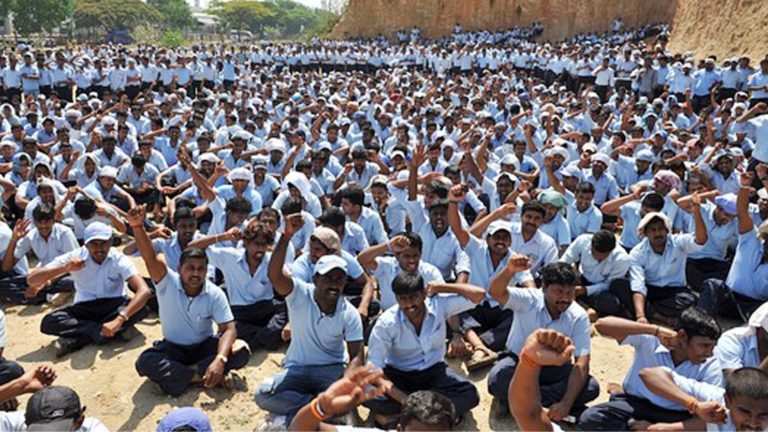Meaning & Definition
Strike is a weapon in the armoury of workmen which they use to make their unwilling employer to accept their demands. Strike threatened or actual may make the other party to concede something but sometimes if this weapon is not used carefully, it may result in unnecessary stoppage of work thereby damaging employer-employee relations and hindering national economic development. For this the statute has tried to regulate the conditions of resorting or not resorting to a state of strike. Sec 2(q) of I.D. Act describes – “Strike means a cessation of work by a body of persons employed in industry acting in combination, or a concerted refusal, or a refusal under a common understanding, of any number of persons who are or have been so employed to continue to work or to accept employment.”
The definition contains three vital requisites to form a strike. Firstly, there should be plurality of workmen. A lone employee refusing to work does not constitute a strike. Secondly, there should be stoppage of work or refusal...





















